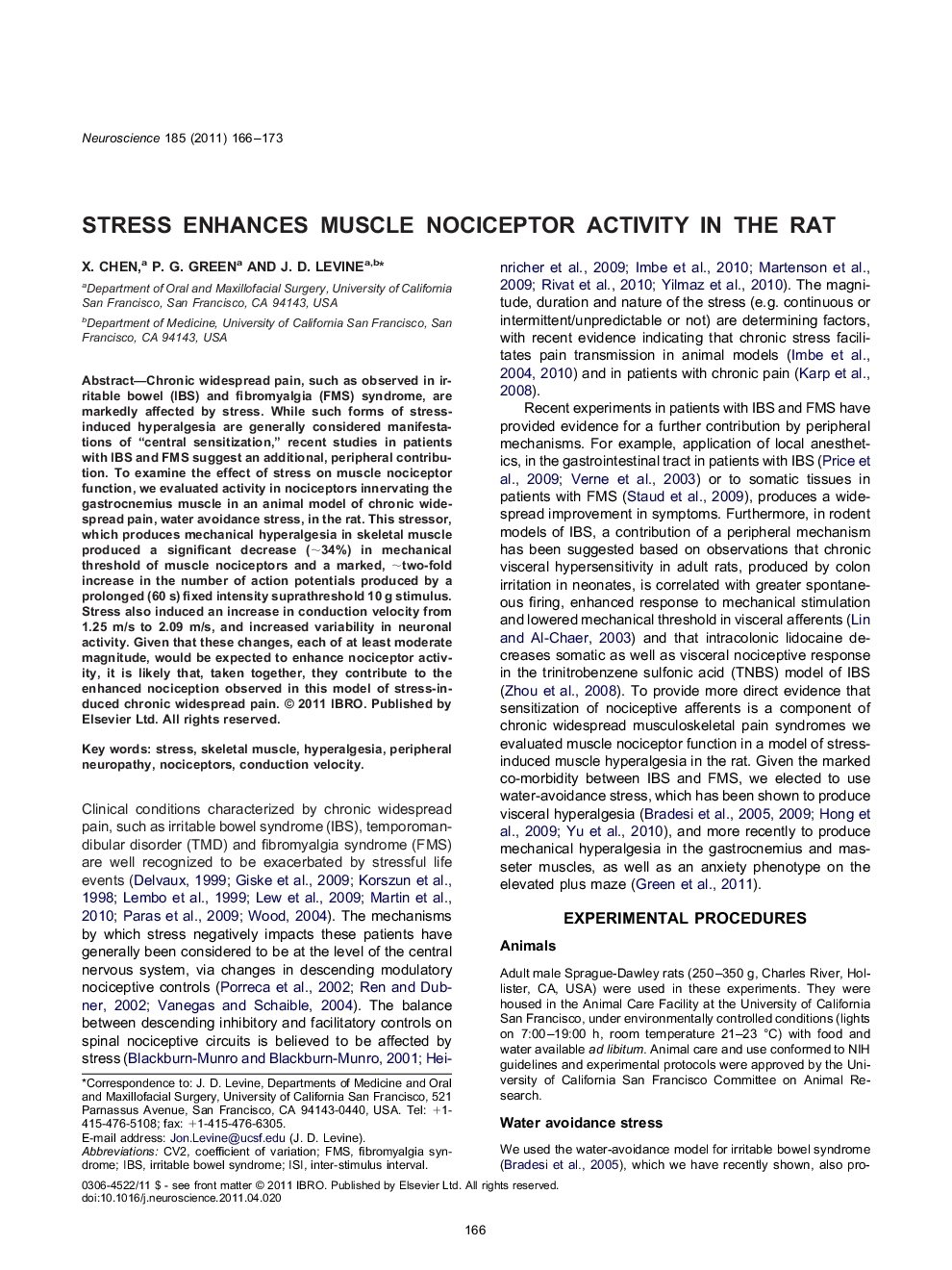| Article ID | Journal | Published Year | Pages | File Type |
|---|---|---|---|---|
| 4338902 | Neuroscience | 2011 | 8 Pages |
Chronic widespread pain, such as observed in irritable bowel (IBS) and fibromyalgia (FMS) syndrome, are markedly affected by stress. While such forms of stress-induced hyperalgesia are generally considered manifestations of “central sensitization,” recent studies in patients with IBS and FMS suggest an additional, peripheral contribution. To examine the effect of stress on muscle nociceptor function, we evaluated activity in nociceptors innervating the gastrocnemius muscle in an animal model of chronic widespread pain, water avoidance stress, in the rat. This stressor, which produces mechanical hyperalgesia in skeletal muscle produced a significant decrease (∼34%) in mechanical threshold of muscle nociceptors and a marked, ∼two-fold increase in the number of action potentials produced by a prolonged (60 s) fixed intensity suprathreshold 10 g stimulus. Stress also induced an increase in conduction velocity from 1.25 m/s to 2.09 m/s, and increased variability in neuronal activity. Given that these changes, each of at least moderate magnitude, would be expected to enhance nociceptor activity, it is likely that, taken together, they contribute to the enhanced nociception observed in this model of stress-induced chronic widespread pain.
▶Water avoidance stress (WAS) decreases mechanical threshold of muscle nociceptors. ▶WAS increases number of action potentials and conduction velocity. ▶Changes in nociceptor function contribute to the enhanced nociception produced by WAS.
